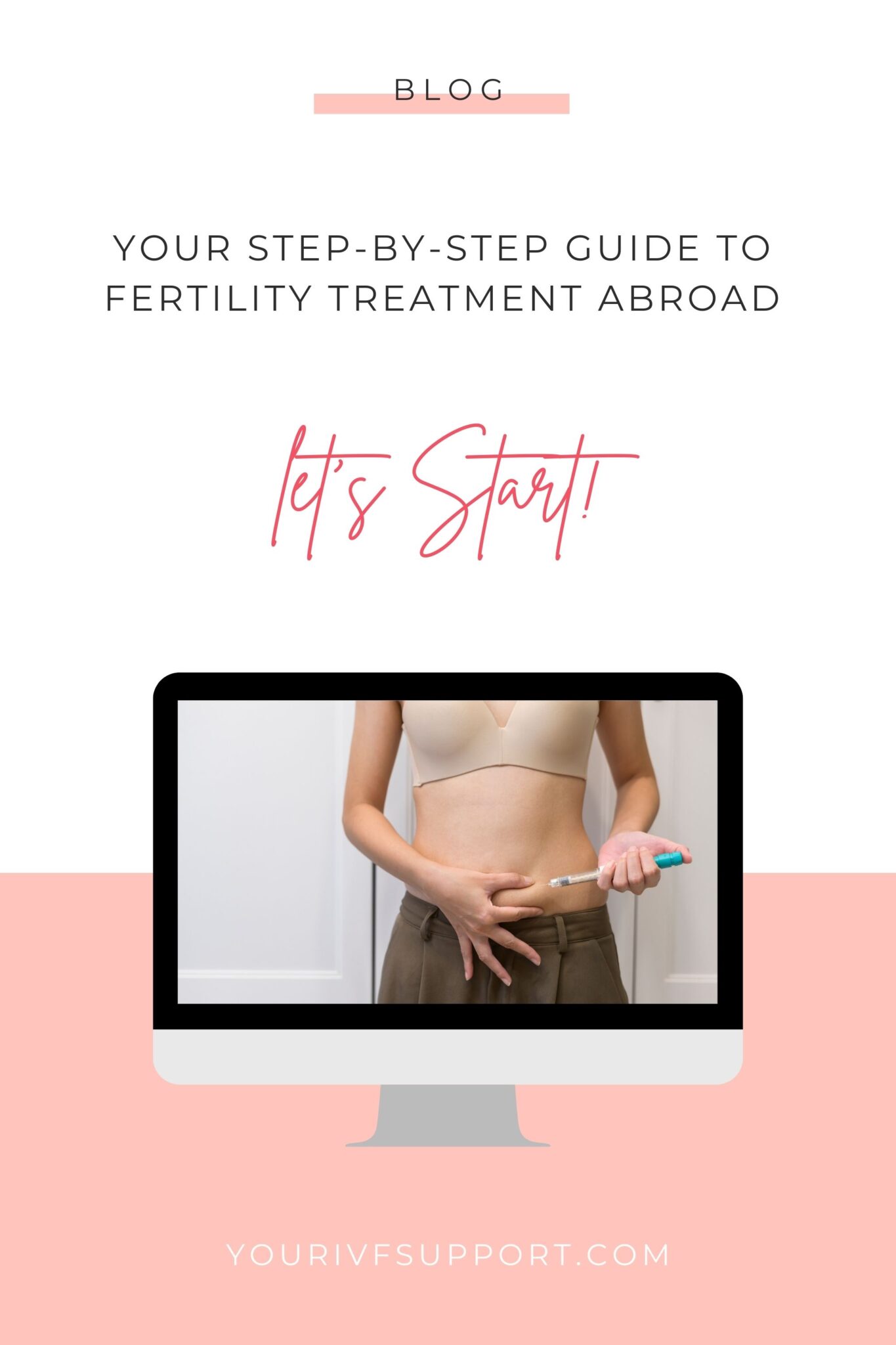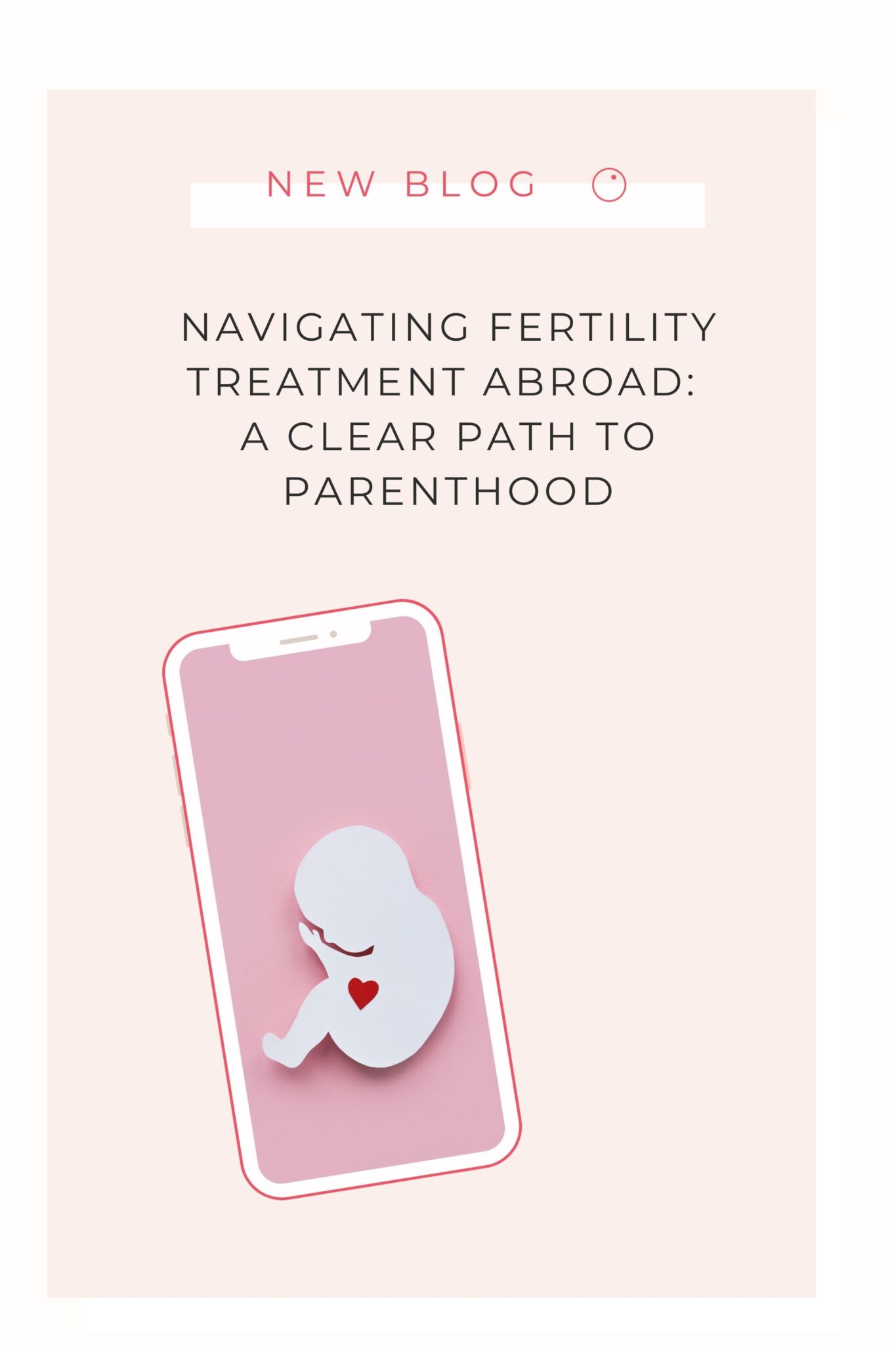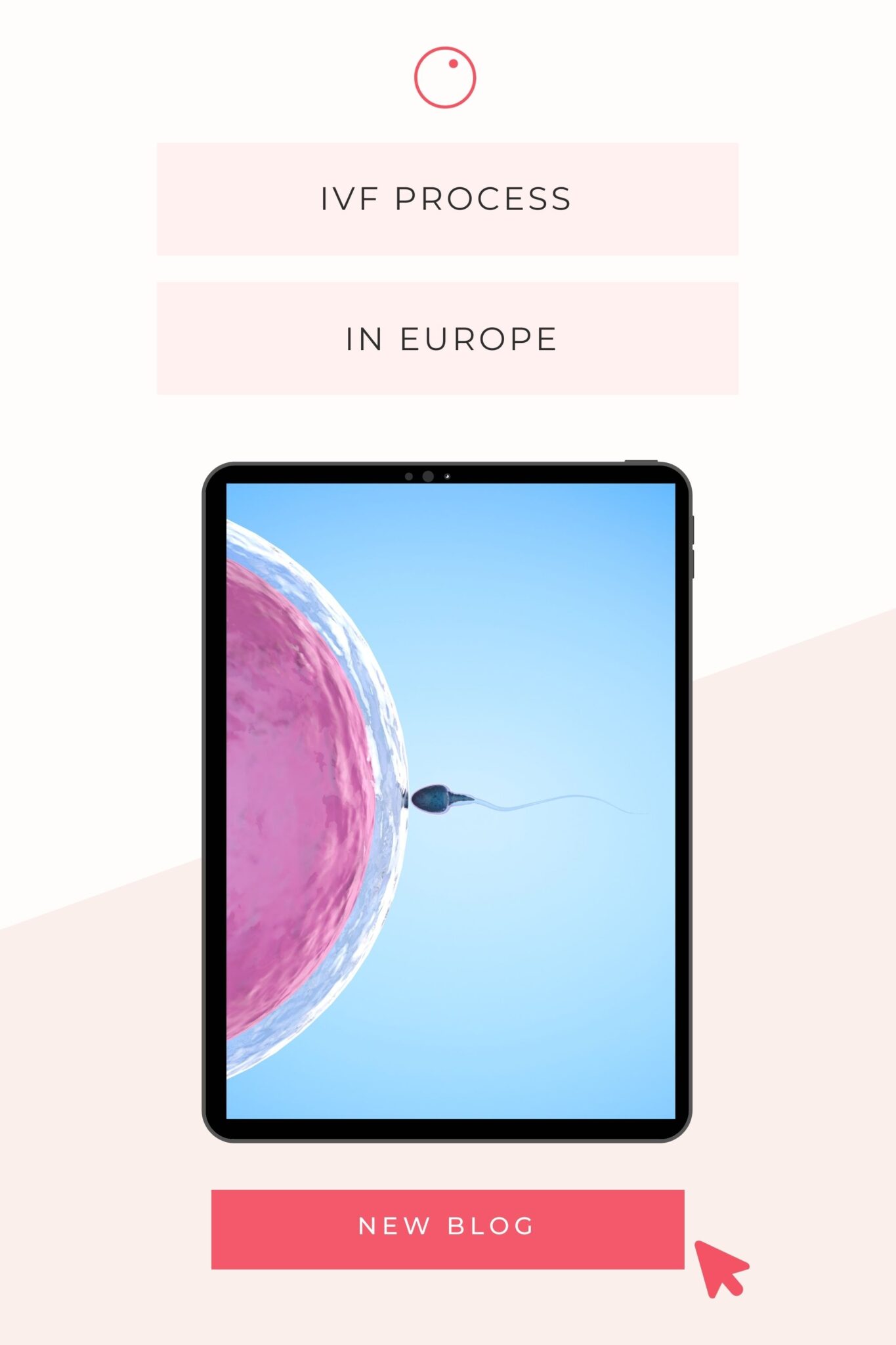Are you trying to start a family and considering going abroad for fertility treatment? This is a big step and I am here to help you with your preparations. In this blog, I'll explain what to expect throughout the whole process - from your first consultation with your gynaecologist to your post-treatment follow-up. So you can feel safe and confident.
Consultation with your gynaecologist
Before you even think about travelling abroad, the first important step is to see your gynaecologist. This appointment is essential to answer any questions you may have and to carry out a preliminary medical examination.
It is possible that not all doctors will be happy to see you abroad for treatment such as egg donation IVF. If this is the case, don't be afraid to change doctors. There are always doctors who are open-minded and supportive. A tip: It's better to ask over the phone to get a first impression.
In this first conversation, you should clarify the following points in particular:
Fertility tests and examinations: A spermiogram is always necessary to plan the next steps. An ultrasound is also important to make sure there are no polyps or fibroids in the uterus.
Preparations: Your doctor will give you advice on how to prepare for treatment, such as taking folic acid or making changes to your diet and lifestyle.
Benefits and risks: Use the consultation to clarify any questions you may have about assisted reproductive technology (ART). Your doctor can give you detailed information about the options and risks.
Clinic research and selection
Once you've completed the initial tests, it's time to choose the right fertility clinic abroad. The first step is to find out in which country you will be receiving the treatment you want. Do you want egg donation, gender selection or are you single or in a same-sex relationship? Not all countries offer each of these treatments.
My free guide gives you an overview of which countries in Europe offer which treatments. An example from a clinic in Northern Cyprus also shows you the prices and chances of success in Europe. (click here)
Once you have selected 1-3 possible destinations, you should compare at least 2-3 clinics. Ask for quotes - preferably with the test results you already have. Some clinics also offer to carry out the tests on site during the initial consultation, which is a good opportunity to get to know the clinic personally.
When choosing a clinic, consider the following points:
Experience and expertise: How many transplants does the clinic perform each year? A larger clinic with more than 1,000 transfers per year will often have better organisation, more IVF patients from abroad and higher IVF success rates.
Treatments and specialisations: Find out what procedures are available, e.g. whether egg donation is open or anonymous, and the ethnicity and age of donors.
Chances of success: Ask how standard IVF success of IVF treatment rates are calculated - by a positive HCG, at 12 weeks or as a live birth rate. Also ask how many embryos are used per transfer.
Value for money: Be aware of hidden treatment costs. Check what is included in the price and what may be extra.
Language skills of the specialists: Make sure the doctors and specialists speak several languages. This will make communication easier and help avoid misunderstandings.
Latest technology: The clinic should have the latest technological equipment to ensure the best possible treatment.
Certifications and training: Make sure that the professionals receive regular training and that the clinic is certified and licensed.
Reality vs. internet: The internet can often paint a picture of glossy brochures. In reality, there are big differences in quality between clinics that may not be immediately apparent to the untrained eye.
Choosing the best clinic is an important step on your way to having the baby of your dreams. Take your time, do your research and trust that there is a clinic that is right for you.
First contact with the clinic for IVF abroad
Once you've chosen your dream clinic, it's time to get in touch. Even if you feel unprepared, this is not a problem. Many clinics offer excellent support, often free of charge, especially for specific issues such as egg donation or PGD.
Have all your medical records and test results ready to give the clinic an initial assessment of your situation. Think about the questions you would like to ask, such as:
- What treatments do you offer and are they right for me?
- What are the IVF treatment costs and what is included in the price?
- What are the chances of success of IVF and what are the key figures on which this is based?
- How long does the entire treatment process take?
- Are there any additional or hidden IVF costs?
The clinic should respond within a day in your own language. Many even offer 24/7 support via WhatsApp. Initial contact is often made by a coordinator who will provide all the necessary information and discuss the treatment abroad options. If necessary, a personal consultation with the doctor can be arranged.
Initial on-site consultation with an IVF clinic abroad
It's always a good idea to arrange an initial consultation on site. This allows you to meet the team anonymously and often allows you to purchase fertility medication at a lower cost of treatment. You will also be able to have all your preliminary tests done on the spot, which is particularly useful if you want to have them done more quickly and more affordably when you are abroad.
When you visit the clinic, you can also get a feel for the atmosphere - for example, the quality of the reception, the service for picking you up from the airport and the cleanliness of the premises. Make sure you feel comfortable.
Use the consultation to clarify any unanswered questions, especially about treatments, prices and success rates. Good clinics will take the time for thorough discussions and examinations to address your individual needs.
If you need help choosing the right clinic, I can help you. With my years of experience and extensive knowledge, I can provide you with information that cannot be found on the internet. Together we will find the clinic that will support you both personally and professionally and give you the best chance of a successful treatment.
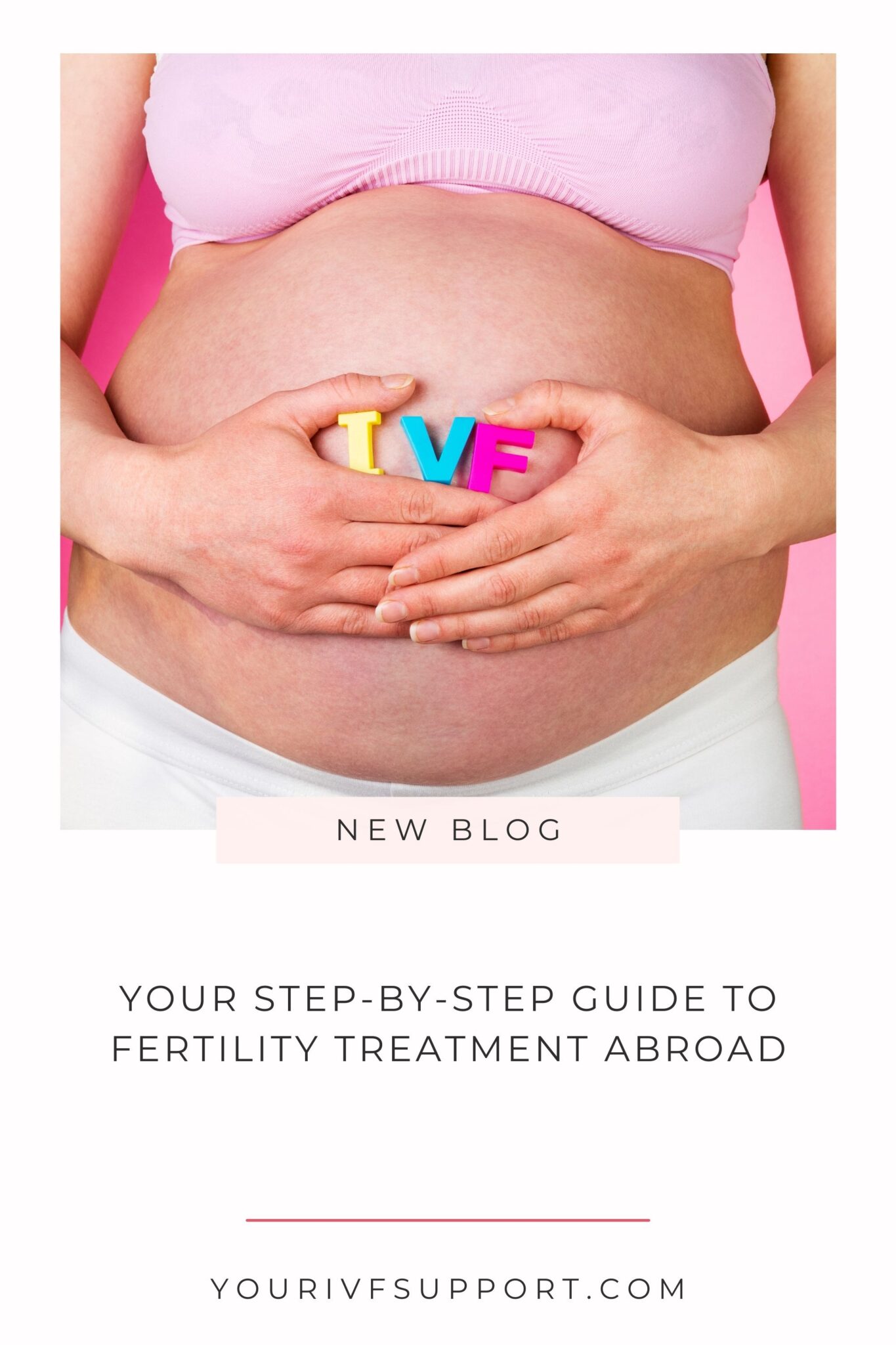
Preparing for fertility treatment abroad
Planning IVF and preparation of your IVF treatment abroad
Once you have chosen a clinic and had your initial consultation, you will need to prepare for your treatment. Here are some things you should consider to ensure you are well prepared for your treatment.
The first step is to collect all the necessary medical tests and records. This includes blood and hormone tests, which are important for the clinic to plan your treatment individually. If you have a partner, you should also get his or her tests, including a spermiogram. If any fertility problems such as fibroids or polyps are found during the preliminary tests, they can be removed surgically before the actual treatment. You can often do this at home, as it may be covered by your health insurance.
Special preparations at your treatment process
In addition to the medical aspects, it is also important to find out about any medications and supplements you may need. A healthy lifestyle is important - this includes a balanced diet, regular exercise and avoiding stress. Your doctor will give you specific advice on how best to prepare for treatment. You should also check in advance whether your health insurance company will pay for the treatment or whether you will be able to claim a tax deduction.
Visiting the fertility clinic and preparing for treatment in Europe
During your first consultation at the clinic, you will be given a detailed treatment plan. This will explain all the steps required to begin treatment and discuss any questions you may have. Make sure you clarify any questions you may have about costs of fertility treatment and financing options to avoid any surprises. If multiple treatment cycles are needed, find out if there are any discounts available.
If you are travelling abroad, plan your trip carefully. It is a good idea to arrive at least 1-2 days before your treatment. The clinic can often help you book transfers and accommodation so that you can concentrate on your treatment.
Tips for smooth preparation for your fertility treatment in Europe
Start planning early and stay in close contact with the clinic. Good clinics often have support staff available around the clock. If you have any questions or concerns, don't hesitate to ask for support - whether from the clinic, counselling services or me.
Travel and arrival in the country of IVF treatment
Booking flights and accommodation
Personally, I always check flights on Skyscanner and then book directly with the airline. This gives you flexibility if your schedule changes at short notice. Also, try not to book too close to the date as there may be delays. You can choose your own accommodation, as clinics often only work with certain hotels. Booking.com or Airbnb.com are good places to find suitable accommodation.
Recommendations for destinations for IVF in Europe
As someone who has lived abroad a lot, I know many destinations well. I am happy to give recommendations and test different travel and accommodation options. Make sure your travel documents are in order - a valid passport or sometimes an identity card is often required. Transfer and preliminary tests
Ask the clinic if they can organise an airport transfer or if it is easier to take a taxi. In Northern Cyprus, for example, I would use the clinic's service as you usually fly into Larnaca and need a transfer across the border. Preliminary tests are often repeated on your first visit.
Plan enough time for your stay to recover and perhaps turn it into a nice holiday. Your family can also travel with you, as the clinic often takes care of all the family members.
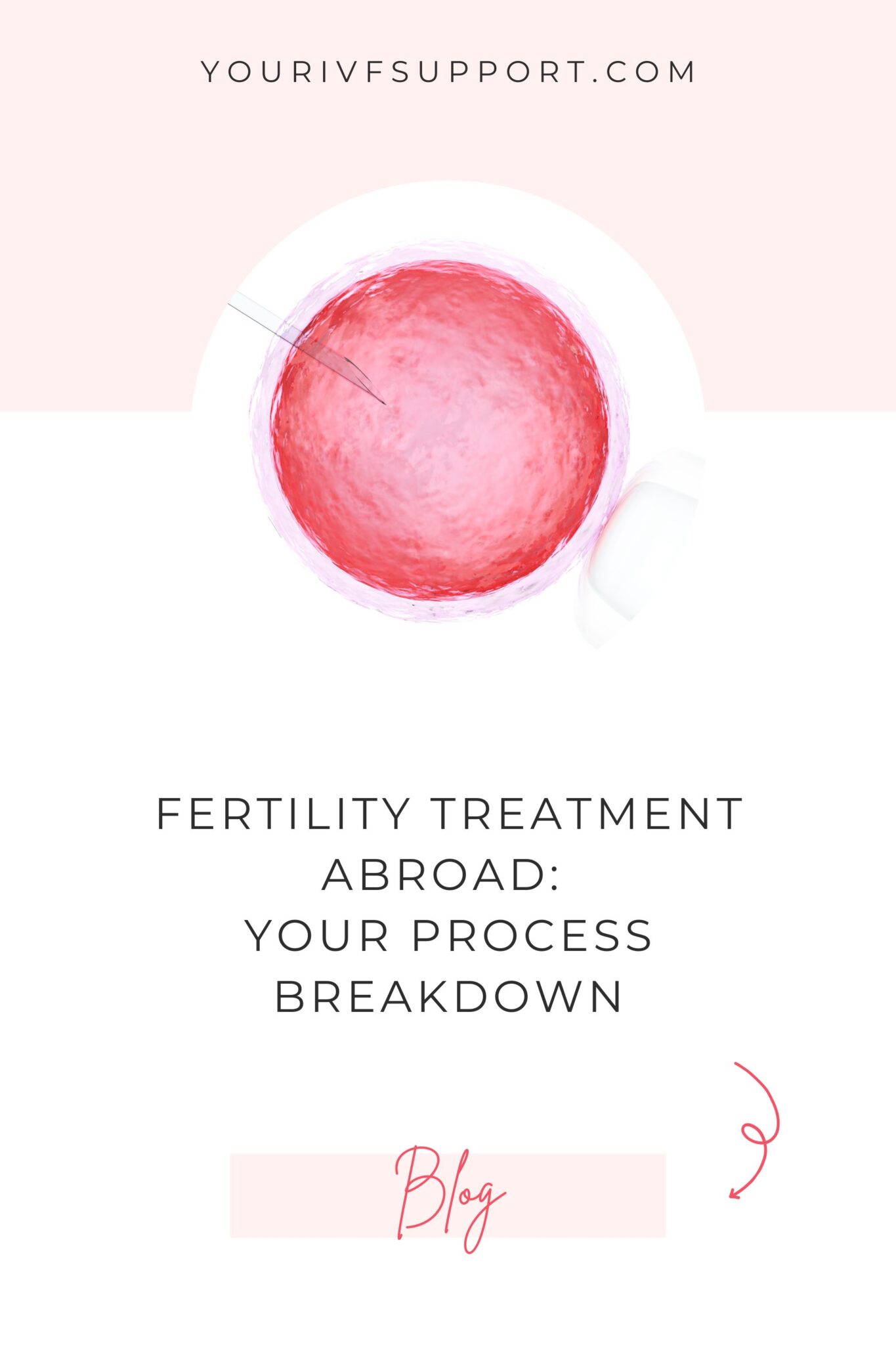
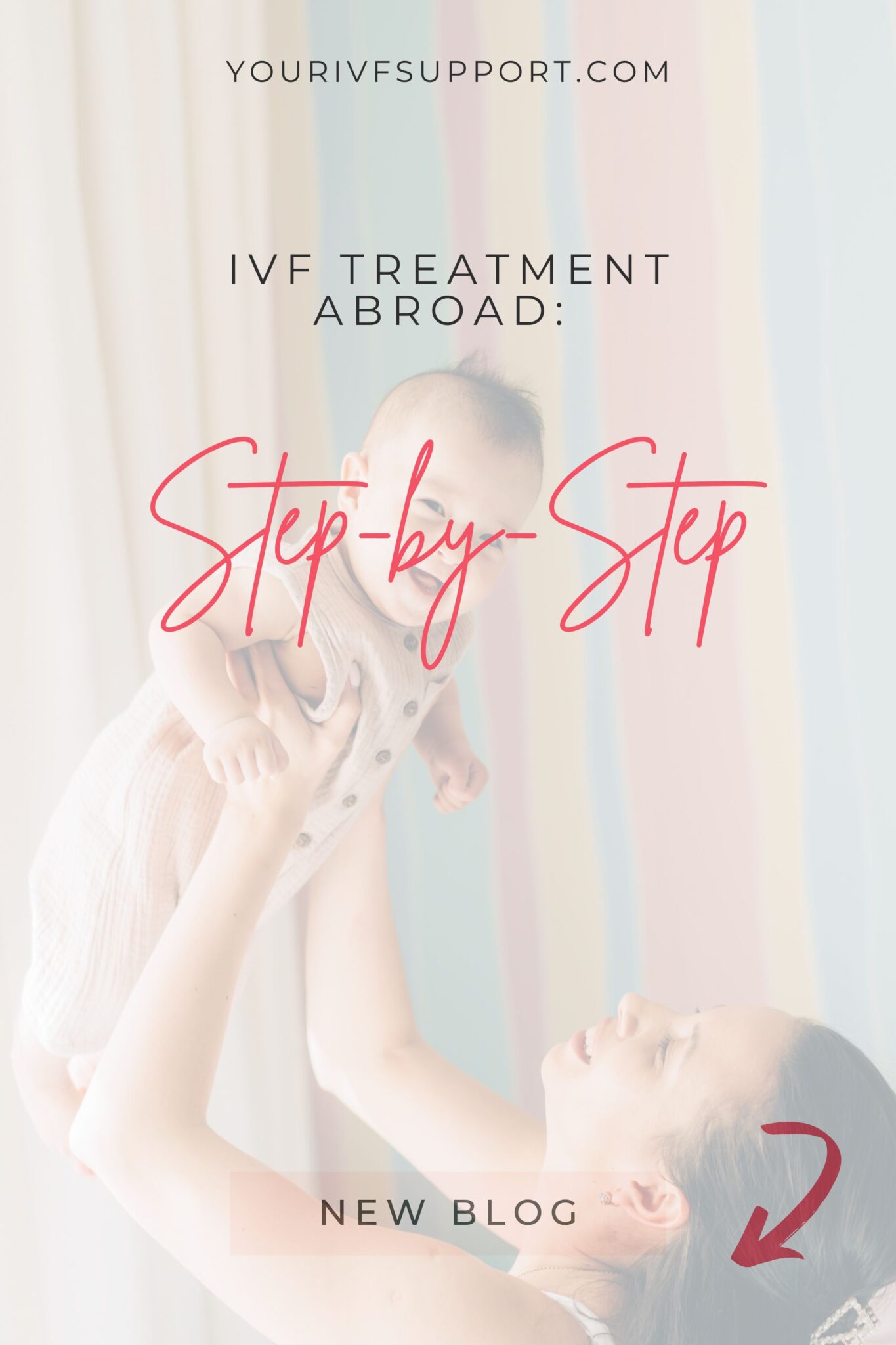
Clinic visit and preparation: initial consultation, planning, hormone stimulation and egg retrieval
Initial consultation and planning of your IVF journey
On your first visit to the clinic, you will be given a warm welcome. If you have already started stimulation at home, the consultation will focus on the assessment and planning for the next steps. If you have not made any preparations, this is where you will discuss everything you need to know to coordinate the start of your treatment at the clinic.
If there are any tests that need to be done, they will now be done on site. The team will make sure that all the necessary steps for a successful treatment are optimally prepared. You will be given precise instructions for the next appointments, such as the trigger injection, the puncture and the embryo transfer.
Hormone stimulation and egg retrieval
Hormone stimulation usually starts on the 3rd day of your period and lasts for about 10 days. The first doctor's appointment should be on the 3rd day. Around the 8th day of stimulation, you will travel to the fertility centre. This is where the trigger injection, sperm collection and puncture will take place. Embryo transfer often takes place the day after egg collection.
Fertilisation, embryo culture and preimplantation genetic diagnosis (PGD)
Fertilisation and embryo culture
The eggs are fertilised in the clinic, which takes about 5 days. Modern clinics use technology such as the embryoscope and advanced artificial intelligence to increase the success rate. Genetic testing is also important - PGT-A allows fresh transfers, while NGS testing usually requires embryos to be frozen.
Embryo transfer: fresh versus frozen
Embryo transfer can be performed using fresh or frozen embryos. In a fresh transfer, the embryo is transferred immediately after fertilisation. A frozen transfer uses embryos that have been previously frozen, which may be for social or other reasons. Nowadays, there is very little difference in success rates between fresh and frozen embryo transfers, as freezing techniques have improved significantly.
" Before choosing a clinic, you should find out which country best suits your needs."
Returning home after embryo transfer
After the embryo transfer or egg retrieval, you will start your journey home. Many people stay abroad for a few days to recover. The "waiting time period" before the pregnancy test can be emotionally difficult. Make sure you eat well and reduce stress. The final test will tell you if the treatment was successful.
Pregnancy test and aftercare
How and when is the test done?
The test takes place about two weeks after the embryo transfer. You can either do a home test or have a blood test done at the clinic, which gives a more accurate result.
Follow-up care
If the test is positive, you will have regular follow-up appointments to monitor your pregnancy. If the test is negative, this is often part of the process. Many couples need several attempts to become pregnant. The clinic will explain all the options available to you and plan the next steps.
In addition to medical follow-up, it is important to take care of your health. A healthy diet, regular exercise and stress reduction will help the success of future treatments. Many clinics also offer emotional support to help you through this time.
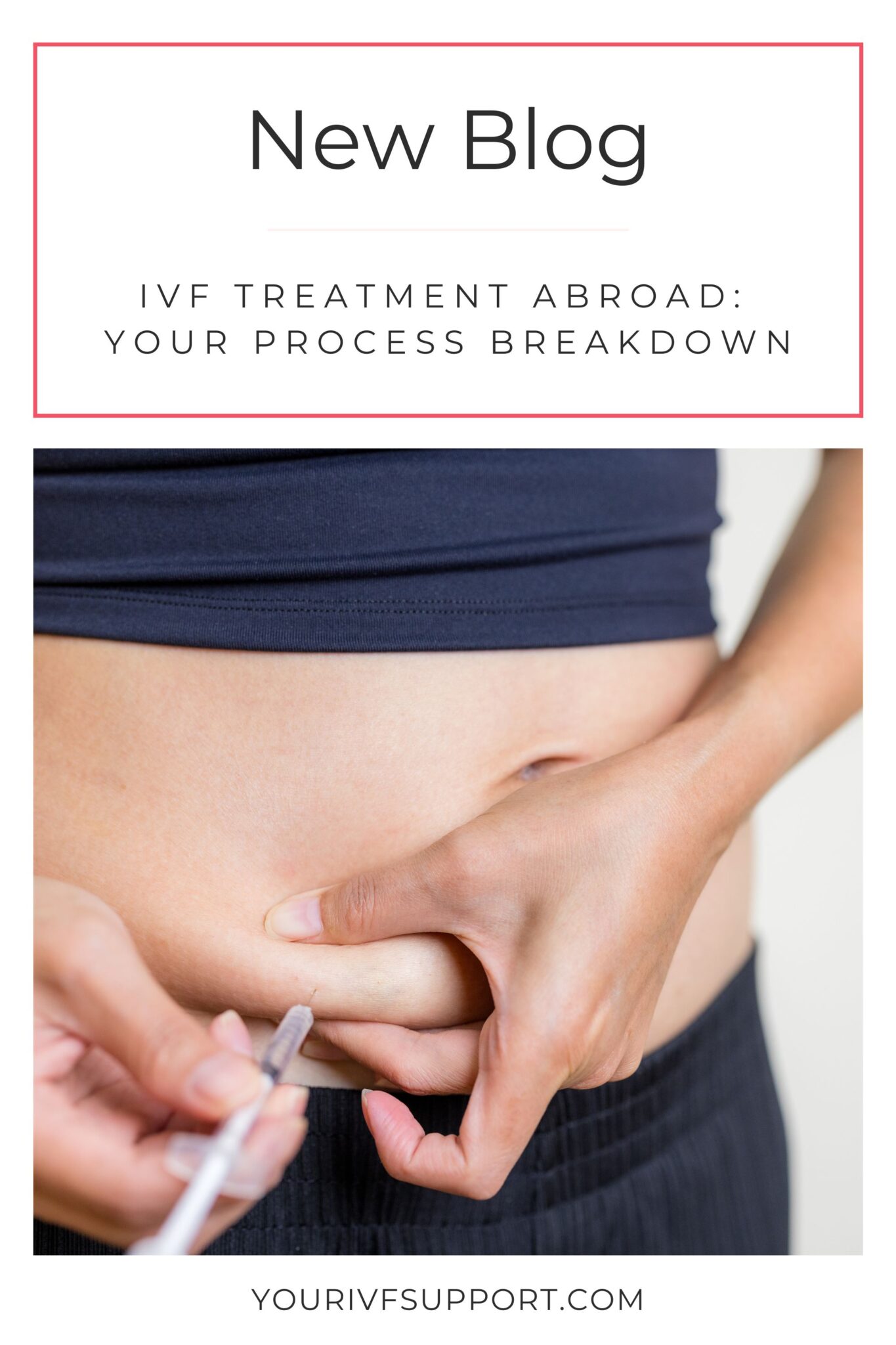
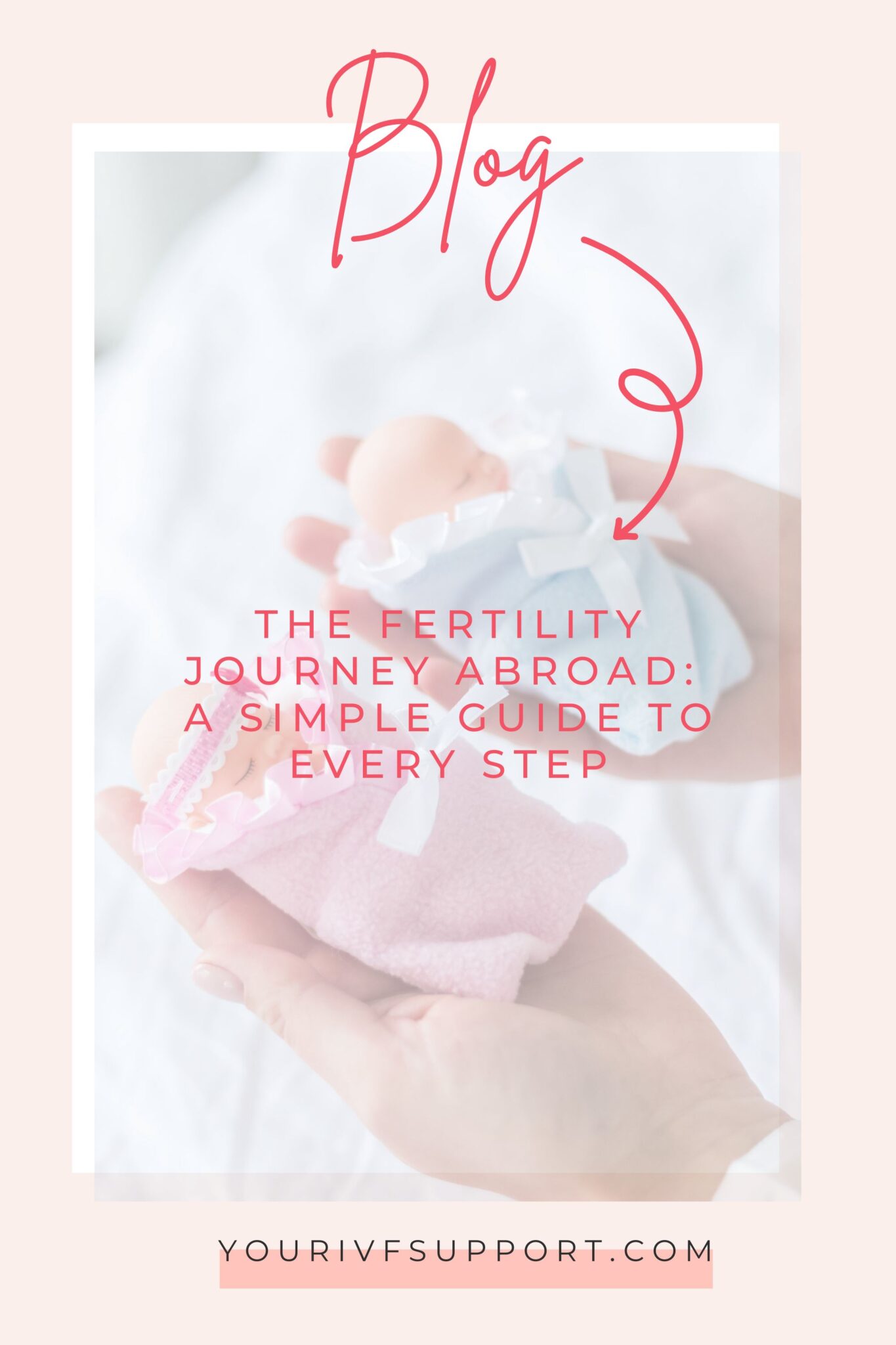
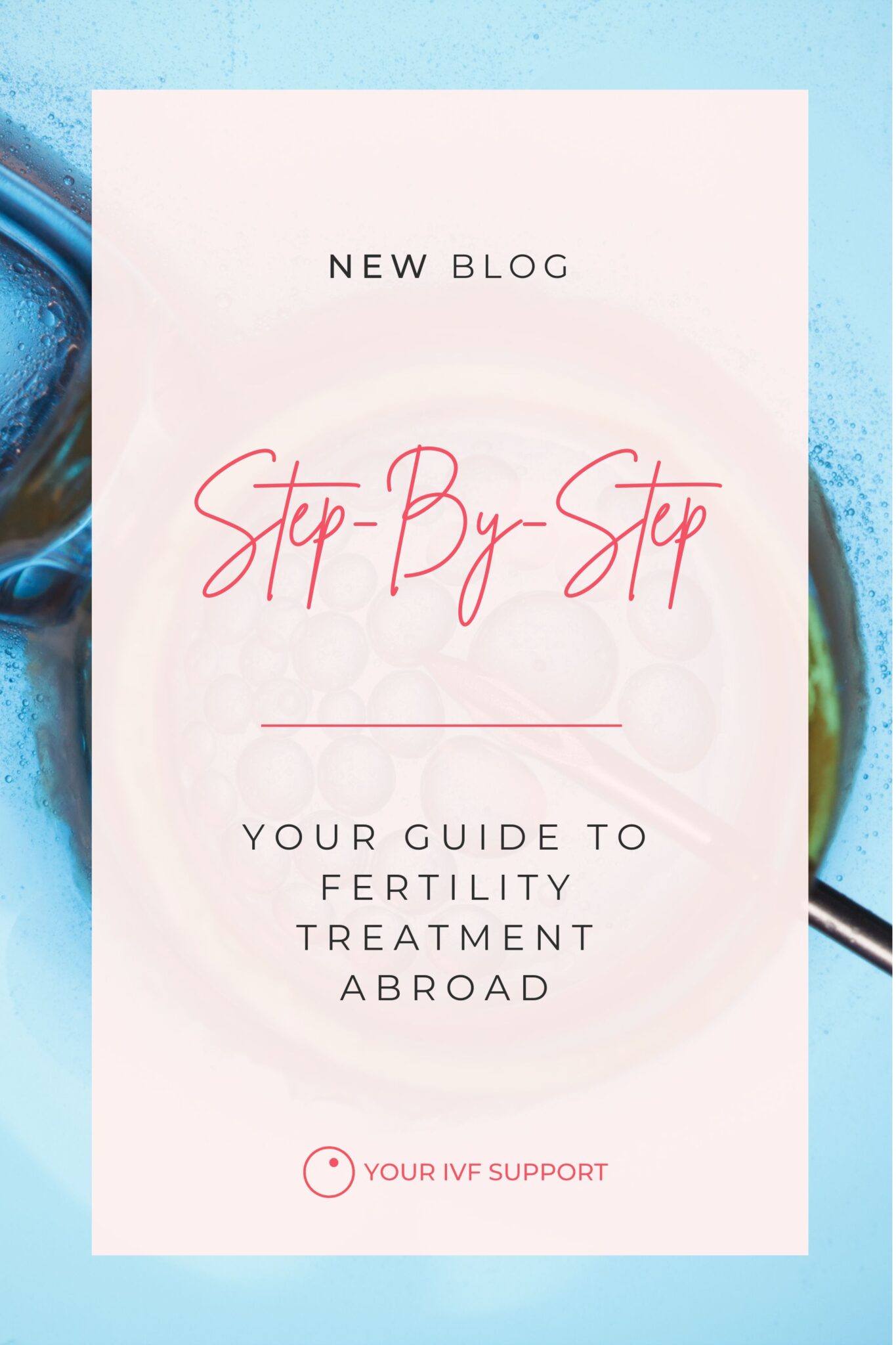
Next steps on the path to your dream child
The journey to having your dream child can be challenging, but also very fulfilling. You have now received a comprehensive overview of the process of overseas infertility treatment - from the initial consultation, to choosing a clinic, to preparing for and carrying out the treatment.
If you still have questions or need help choosing the right clinic, I am here to help. Together we can work out the best plan for your individual situation and make sure you are well prepared for this exciting time.
I invite you to download my free guide, which provides detailed information on different treatments and countries. If you would like personal advice, please contact me. I will help you find the perfect place for your treatment and guide you through the whole process.
Take the first step and let's start your journey to having the child of your dreams together. Your dream family is just a click away!
I look forward to helping you on your journey!
